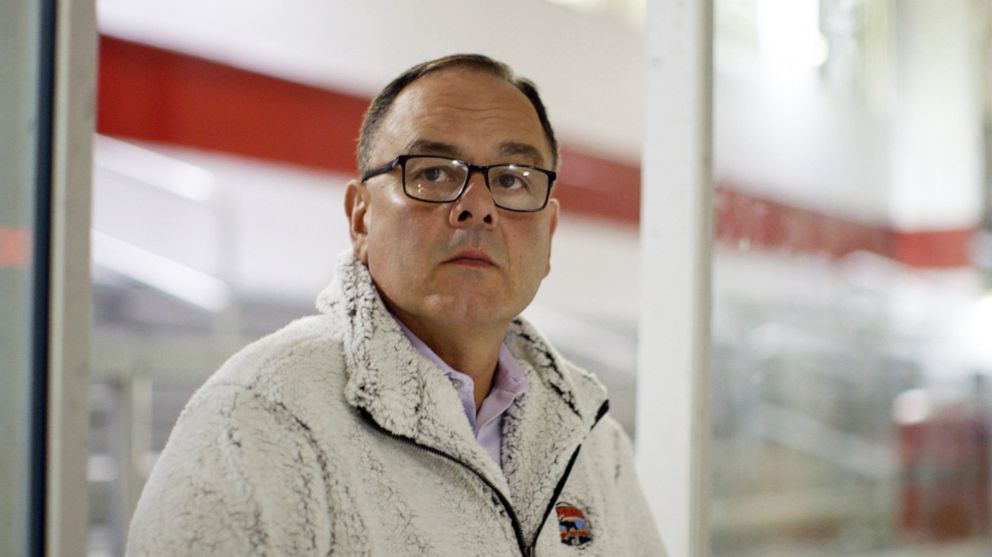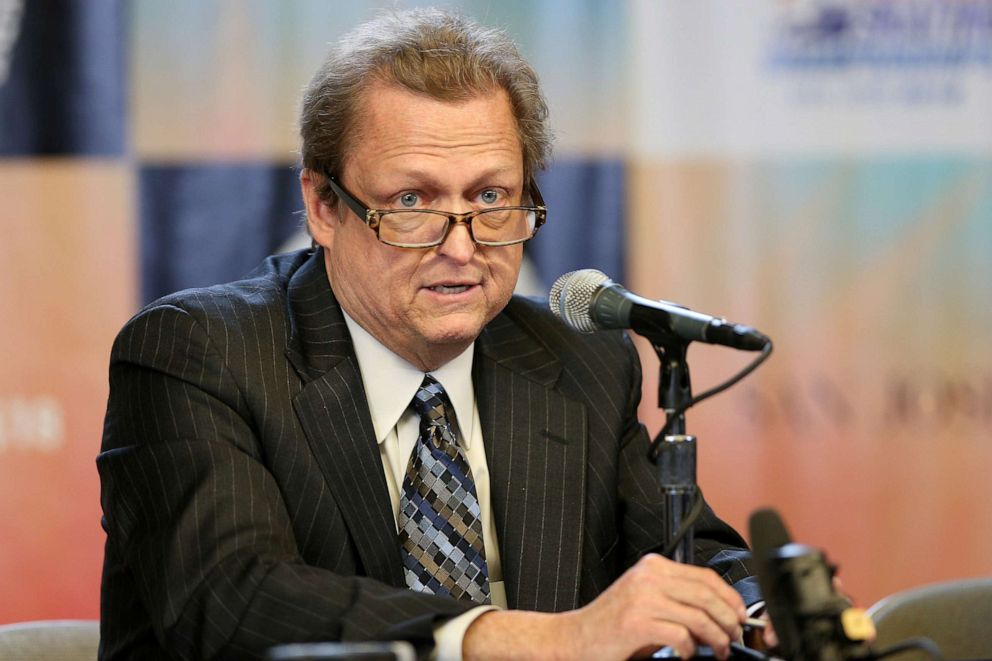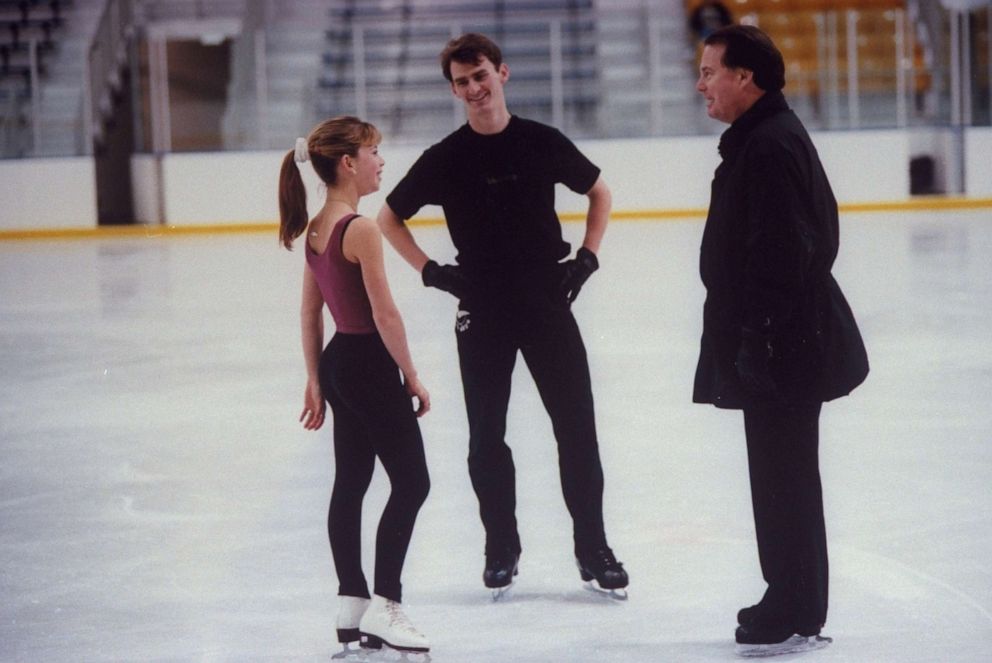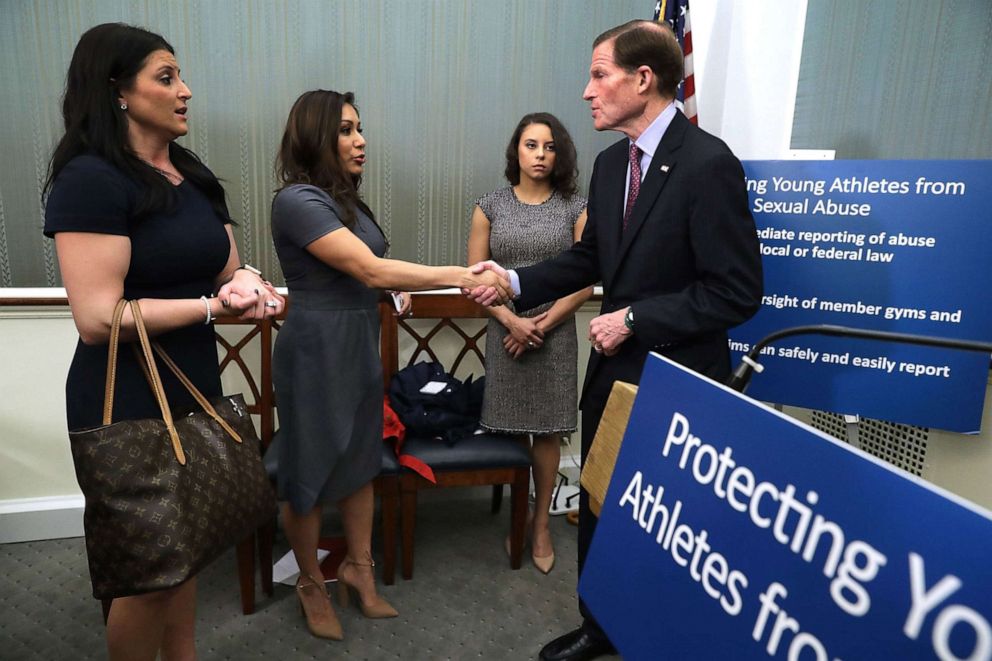Skater ready to air sexual abuse allegations says US Figure Skating made him an offer
"I have to wonder if that was a tactic to get me to try and not talk," he said.
During the 2018 Winter Olympics, at a hotel on the outskirts of Pyeongchang, a pair of high-ranking U.S. Figure Skating officials met with an alleged sexual abuse victim who was preparing to tell his story to the media. He says they made him an offer he believes was intended to secure his silence.
Nearly two decades ago, Craig Maurizi, a onetime Olympic hopeful turned Olympic coach, had accused Richard Callaghan, his former coach and colleague, of sexually abusing him when he was a young skater. He reported the alleged abuse to the national governing body and told his story to several major media outlets, including ABC News, but Callaghan denied the allegations, and his claim was dismissed without full consideration because too much time had passed, they said, since the alleged abuse. Callaghan — then one of the world’s top coaches, having trained a pair of national champions in Todd Eldredge and Tara Lipinski — was permitted to continue coaching.
“I feel like I told the world,” Maurizi told ABC News. “But in reality, nothing really changed. I mean, figure skating just went back to, you know, what it always did … Producing medals.”
By 2018, Maurizi expected things might be different. He had recently watched dozens of elite gymnasts confront disgraced team doctor Larry Nassar in open court, sparking a reckoning for the leadership of USA Gymnastics that has yet to end. He called David Raith, U.S. Figure Skating’s longtime executive director, to “give him the heads up” that he had filed a new complaint about his earlier allegations with the U.S. Center for SafeSport, the U.S. Olympic Committee’s sexual misconduct watchdog, and decided to speak publicly. They arranged to meet.
“As much as I hate to say this,” Maurizi told ABC News, “looking back on that meeting now, I can't help but wonder if it was an attempt to get me to be on board with U.S. Figure Skating.”

A few weeks after that initial conversation, as the world’s top athletes gathered in South Korea for the Winter Games, Maurizi and his now-wife Tara Modlin met Raith at a convenience store next to the Olympic Village. They got into a car and were driven to a hotel near the Olympic Park in Gangneung, where they were met in the lobby by Patricia St. Peter, a past president of the federation who remains active in its governance, including as a spokesperson for its SafeSport Program.
“I think they wanted to discuss with me what my intentions were, what did I plan to do,” Maurizi said. “And I reiterated exactly what I told him on the phone. I said, ‘I’m going to move forward. I've already, at this point, filed a report with the U.S. Center for SafeSport. But I'm going to talk to the media.’”
Maurizi says he was surprised by what happened next. First, St. Peter told him about the various improvements made to the federation’s sexual misconduct policies since Maurizi first came forward and credited him with sparking the initial conversations that led to those changes. Then, Raith implored him not to speak to the media, Maurizi said, at least until after SafeSport completed its investigation, because doing so could “taint” the process. Finally, Maurizi said, he was offered a position.
“He invited me to be on an executive committee for U.S. Figure Skating,” Maurizi told ABC News. “I would be heading up a committee, or maybe almost a new branch of U.S. Figure Skating, that would deal with sexual abuse and things of this nature, because I had such a unique perspective on the situation. To me, it was significant.”
There was no discussion, Maurizi said, of whether this would have been a paid or a volunteer position. But it was clearly a “position of prominence” within the organization, he said, and the implication was clear, at least to him.
“I have to wonder if that was a tactic to get me to try and not talk,” Maurizi told ABC News. “I mean, that was certainly never said to me, but I couldn't infer any other conclusion to that.
“To be offered a position, I certainly knew that if I was going to take a position with U.S. Figure Skating, that I had to be on board with U.S. Figure Skating,” he added. “That was obvious. I couldn't be in a position of authority within the organization and then speak of its shortcomings.”

In response to questions from ABC News, U.S. Figure Skating issued a statement that acknowledged that St. Peter had “reiterated to Craig that by coming forward to U.S. Figure Skating with his case in 1999, he made a major impact on athlete safety in U.S. Figure Skating that dates back to May 2000” but strongly denied his assertion that Raith had attempted to dissuade him from talking to the media or offered him an official position within the organization.
“There was no invitation for Craig to serve on an executive committee; there is no such committee within the U.S. Figure Skating structure, nor is there is a ‘new branch’ in the organization,” the statement reads. “There was a discussion with Craig about sharing his story to help educate athletes, parents and coaches. U.S. Figure Skating executive director David Raith reiterated to Craig that it was his decision – and his decision alone – if he wanted to share his story with athletes, parents and coaches, and/or the media.”
Maurizi, however, is standing by his version of events.
He left the meeting, he said, without providing Raith an answer. Shortly after returning from South Korea, he agreed to an interview with ABC News that ultimately aired on “Good Morning America” in which he described the handling of his complaint against Callaghan in 1999 as a “deliberate cover-up.” He would later testify before Congress as lawmakers weighed a broader investigation of the U.S. Olympic Committee’s handling of sexual abuse allegations made by its young athletes.
As he had told Raith in South Korea, the calculus had been simple.
“[Callaghan] was actively coaching,” Maurizi told ABC News. “And he had been for the last 20 years. And so I know last time in 1999 when I talked to the media, it made life difficult for him for a while. And I would suspect that if life was difficult, that it also made it harder for him to abuse people. And so this [was] my intent again to do it.”

U.S. Figure Skating has maintained that it handled Maurizi’s claim appropriately and in accordance with the federation’s bylaws at the time but acknowledged, in a statement, that “Maurizi’s case prompted U.S. Figure Skating to examine its rules and procedures in the area of Athlete Safety.”
“As a result, in May 2000, U.S. Figure Skating instituted its first ever Harassment and Abuse Policy and a mandatory reporting requirement for all its members,” the statement reads. “In May of 2000, U.S. Figure Skating added to its official Rulebook that if any form of child abuse is observed or suspected by a member, the member must immediately contact local law enforcement or a public child welfare agency and make a report. In addition, the member must also make a report to U.S. Figure Skating’s Ethics Chair. The following year, another new rule mandated publishing the identity of any banned or suspended members in SKATING magazine, later moving a detailed list to U.S. Figure Skating’s official website, where it still resides today.”
“U.S. Figure Skating has acted promptly,” the federation added, “on every incident reported to it of suspected sexual abuse or misconduct since the new policy was enacted in May 2000.”
Callaghan, meanwhile, was suspended from the federation in March of 2018 “pending final resolution of the matter” by SafeSport. It has been more than 18 months since Maurizi filed his initial complaint and supporting documentation, which included accounts from several other people who either allegedly experienced or witnessed sexual misconduct by Callaghan.
A spokesperson for the U.S. Center for SafeSport told ABC News that the average length of an investigation is 90 days, but that metric can be “misleading,” because “matters vary dramatically and are often complex.” Indeed, Callaghan sued the U.S. Center for SafeSport following his temporary suspension, in the midst of their investigation of Maurizi’s allegations, claiming breach of contract and a violation of his right to due process, but a judge dismissed that suit without prejudice nearly a year ago.
The months of waiting for a conclusion has left Maurizi frustrated.
“I’ve put in dozens of phone calls to the Center asking for updates,” Maurizi told ABC News. “And they were unable to give me any real information. … Their credibility, in my opinion, is shot.”

U.S. Figure Skating is far from the only national governing body grappling with this issue.
In July, Senators Jerry Moran, a Republican from Kansas, and Richard Blumenthal, a Democrat from Connecticut – leaders of a Senate subcommittee charged with oversight of the U.S. Olympic Committee and its associated sports federations -- released the findings of an investigation that had started with the Nassar case but quickly expanded into other sports. The report notes that Maurizi testified before the subcommittee and investigators spoke to survivors from several different sports, including figure skating, who preferred not to be publicly identified.
“Even as Nassar’s case captured the headlines, it was hardly the only case of unchecked criminal behavior in amateur Olympic sports,” the report said. “His case underscored serious allegations of sexual abuse made in USA Taekwondo, USA Swimming, U.S. Figure Skating, and other sports—and the failure on the part of those [national governing bodies] to ensure the health and safety of their athletes.”
In response to questions from ABC News, Sen. Blumenthal, the committee’s ranking member, called Maurizi’s allegations “deeply troubling.”
“USFS must spend more time and energy protecting its athletes,” Blumenthal said, “than it does protecting its brand.”
If you have information about these allegations or similar allegations, please contact Pete Madden (pete.a.madden@abc.com) or Cho Park (cho.park@abc.com).
ABC News' Jinsol Jung contributed to this report.



